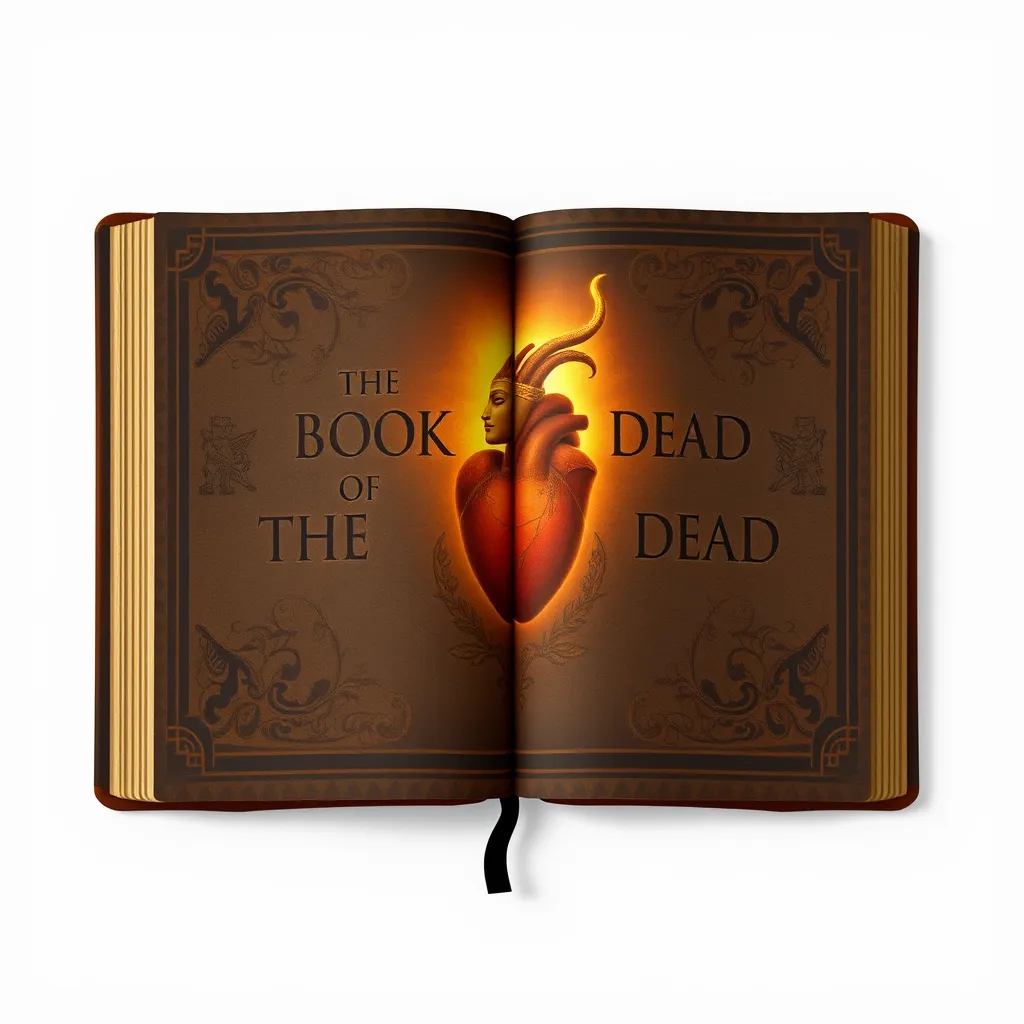The Book of the Dead: The Weighing of the Heart
I. Introduction to the Book of the Dead
The Book of the Dead, known as “The Egyptian Book of the Dead” or “The Book of Coming Forth by Day,” is a crucial text in ancient Egyptian culture. It serves as a guide for the deceased in navigating the afterlife. This funerary text is a compilation of spells, prayers, and incantations designed to assist the soul in overcoming obstacles and achieving a favorable judgment in the afterlife.
One of the most significant concepts within the Book of the Dead is the Weighing of the Heart, a ritual that determines the fate of the deceased based on their moral integrity and actions during their lifetime. This process is central to understanding how the ancient Egyptians viewed morality, justice, and the afterlife.
II. Historical Context of the Weighing of the Heart
The Weighing of the Heart ritual has its origins in ancient Egyptian beliefs regarding the afterlife and the soul’s journey. This belief system evolved over several dynasties, becoming more refined and complex. The early concept of the afterlife began with the notion of a journey through the Duat, the Egyptian underworld, where the deceased would face various challenges.
As the civilization progressed, the Weighing of the Heart became a critical aspect of funerary practices. It was believed that after death, the heart of the deceased would be weighed against the feather of Ma’at, the goddess of truth and justice. This ritual was not only a test of the individual’s moral character but also a reflection of the broader societal values of the ancient Egyptians.
III. The Symbolism of the Heart in Ancient Egypt
In ancient Egyptian culture, the heart was considered the seat of emotion, thought, and morality. Unlike many other cultures where the mind is associated with reasoning, ancient Egyptians believed that the heart held the essence of one’s being. This belief is evident in their burial practices, where the heart was often left in place during mummification, while other organs were removed.
The heart’s significance extended beyond life into death. It was viewed as a symbol of truthfulness and integrity, which were essential for a favorable judgment in the afterlife. Art and literature from ancient Egypt frequently depicted the heart in various forms, emphasizing its importance in both life and death.
IV. The Weighing Process: Rituals and Deities Involved
The Weighing of the Heart is a ritual depicted in the Book of the Dead, showcasing the judgment of the deceased. The process begins with the soul of the deceased being presented to the god Anubis, who oversees the weighing. Anubis, often depicted as a jackal or a man with a jackal’s head, prepares the deceased for the weighing ceremony.
During the weighing, the deceased’s heart is placed on one side of a scale, while the feather of Ma’at is placed on the other. The feather represents truth and justice, embodying the principles that the deceased must uphold. This moment signifies the balance between the individual’s actions and the moral standards set by the goddess Ma’at.
V. Outcomes of the Weighing of the Heart
There are two possible outcomes of the Weighing of the Heart:
- Acceptance: If the heart is found to be lighter than or equal to the feather, it signifies that the deceased lived a righteous life. They would then be granted passage to the afterlife, where they could live in peace and happiness.
- Rejection: If the heart is heavier than the feather, it indicates a life filled with wrongdoing. The consequences for the unworthy are severe.
The concept of the “Devourer,” a fearsome creature known as Ammit, comes into play for those deemed unworthy. Ammit would consume the heart of the deceased, leading to eternal damnation and the complete annihilation of the individual’s soul.
VI. The Role of the Book of the Dead in the Weighing of the Heart
The Book of the Dead contains specific spells and texts that relate directly to the Weighing of the Heart. These spells were intended to protect the deceased and ensure a favorable judgment. The presence of these texts in burial chambers indicates their importance in the journey of the soul.
Moreover, the Book of the Dead served as a personalized guide for the deceased, tailored to their individual life experiences and moral standing. This personalization was vital, as it highlighted the belief that each person’s journey in the afterlife was unique and required specific guidance and protection.
VII. Modern Interpretations and Cultural Impact
In contemporary culture, the Weighing of the Heart continues to capture the imagination of many. This ritual is often referenced in literature, art, and film, symbolizing the eternal struggle between good and evil, as well as the quest for justice.
Its influence can be seen in various forms of modern media, where themes of moral judgment and the consequences of one’s actions resonate with audiences. The ongoing interest in ancient Egyptian beliefs and practices highlights the enduring legacy of the Weighing of the Heart and the Book of the Dead.
VIII. Conclusion
The Weighing of the Heart is a central theme in the ancient Egyptian understanding of the afterlife. It signifies the importance of morality, truth, and justice in the journey of the soul after death. Through the lens of the Book of the Dead, we gain insight into the values and beliefs that shaped ancient Egyptian culture.
As we reflect on the significance of this ritual, it is clear that the teachings of the Book of the Dead have left an enduring legacy, influencing how we perceive life, death, and the moral choices we make throughout our lives.




